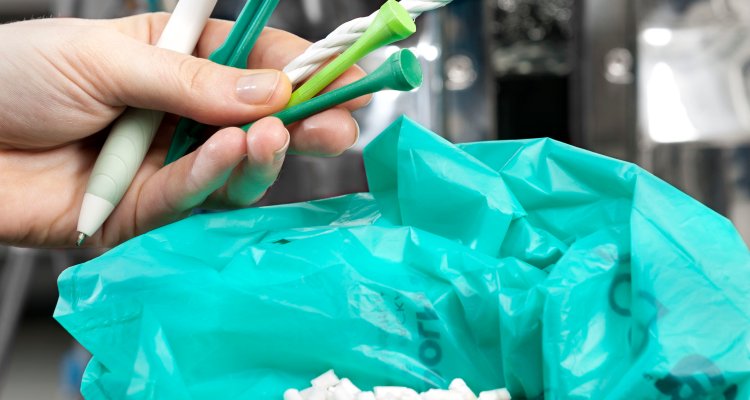
Project
URBIOFIN: from municipal waste to bioplastics and other high-value applications
The European URBIOFIN BBI-project will focus on converting the organic fraction of urban waste on a semi-industrial scale. The project, that will focus on the techno-economic and environmental feasibility will create chemical building blocks, biopolymers, additives and bio-fertilizers using the biorefinery concept ‘urban biorefinery’.
Ultimately, URBIOFIN offers a new feasible and more sustainable scenario alternative to the current treatment of the organic fraction of urban waste. Wageningen Food & Biobased Research focuses on two specific topics in this project: the production of medium-chain length fatty acids and derived mcl-PHA via microbial fermentation, and the scale-up, efficient extraction and novel commercial applications of PHA.
Biodegradable plastics
“As a building block for high quality products, sustainable fatty acids have interesting market applications”, says Frits de Wolf, project manager at Wageningen Food & Biobased Research. “'In this project we are focusing on the conversion of fatty acids to PHAs. A key advantage of these microbial plastics is that they are produced from renewable resources and are completely bio-degradable. Our specific objective is to produce mcl-PHA, which is expected to be a suitable ingredient, next to another PHA type developed in URBIOFIN, for high value applications such as biodegradable agricultural plastics or biomaterials for the cosmetics industry.”
Fermentation process development
For the production of mcl-PHA, we grow the soil bacterium Pseudomonas putida on volatile fatty acids (VFA) and ethanol, which are both generated by fermentation of organic municipal waste. In spite of the sub-optimal nature of anaerobically digested organic waste as a growth medium, we realized a titre of 6-8 g/L mcl-PHA, 50-70 hours after initial inoculation of Pseudomonas. For the production of microbial oil, we grow the yeast Cutaneotrichosporon curvatum on VFA in anaerobically digested organic municipal waste. For URBIOFIN, the PHA and oil are extracted from the biomass with a green solvent. We have a considerable track record on mcl-PHA production and microbial oil production using the soil bacterium Pseudomonas putida and the yeast Cryptococcus curvatus, respectively.”
Transferring knowledge to commercial partners
URBIOFIN is a typical BBI demonstration project. "We carry the technology that we develop in our lab on to partners who want to apply the process on an industrial scale. Bringing the various PHA to market is the task of commercial partners.
The 17 project partners in URBIOFIN are located in eight European countries, with Spanish engineering company IMECAL coordinating the project.